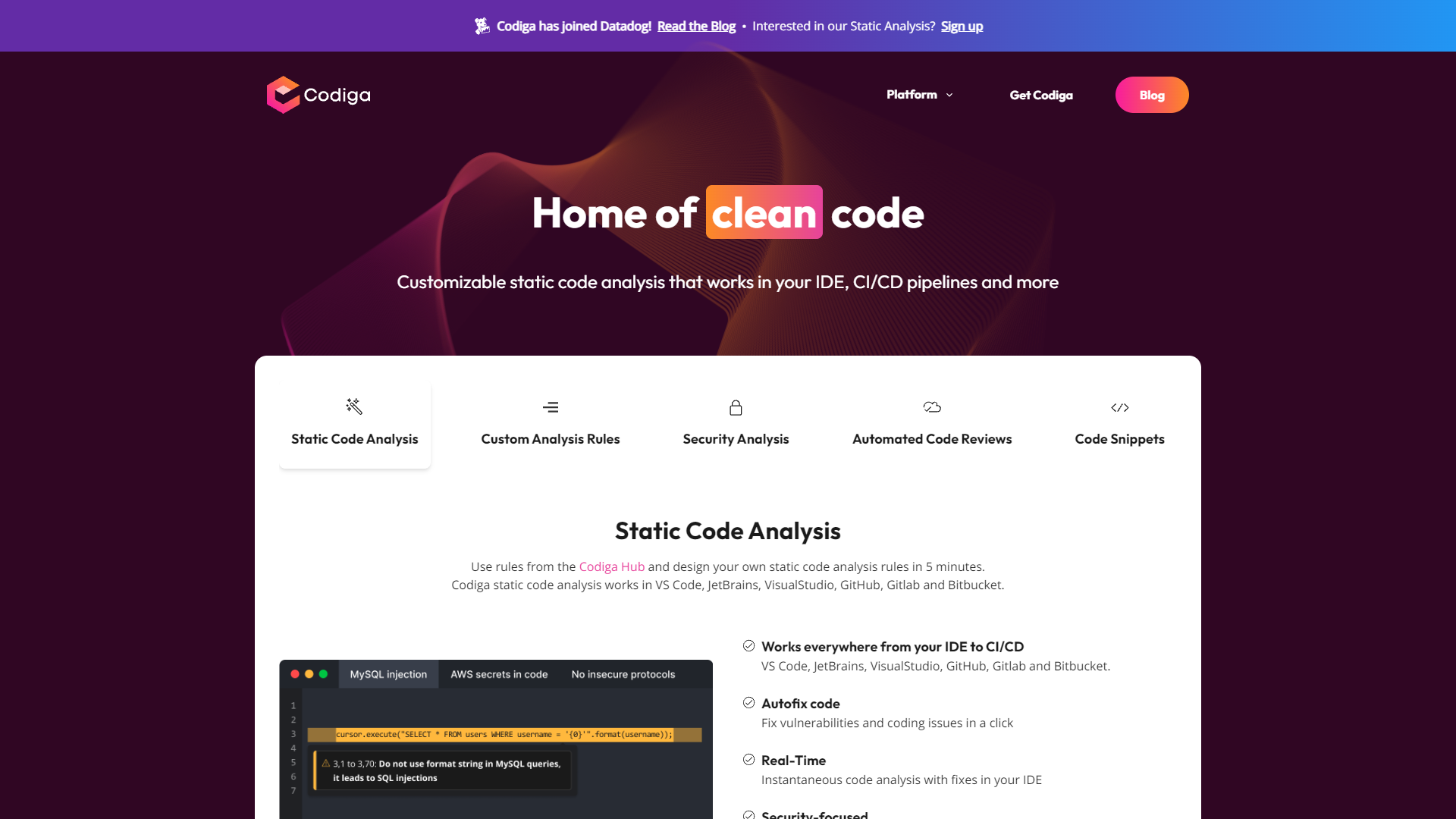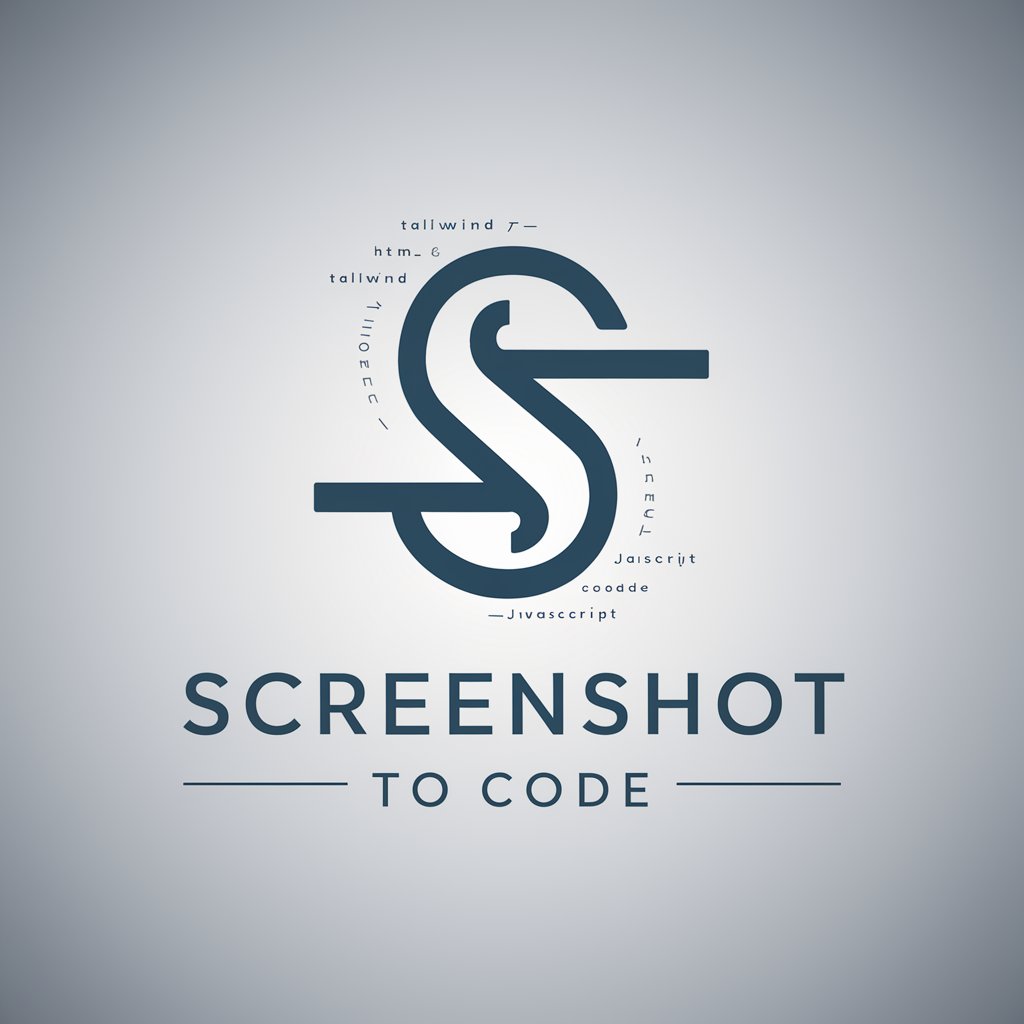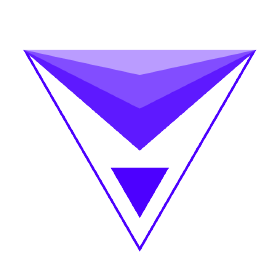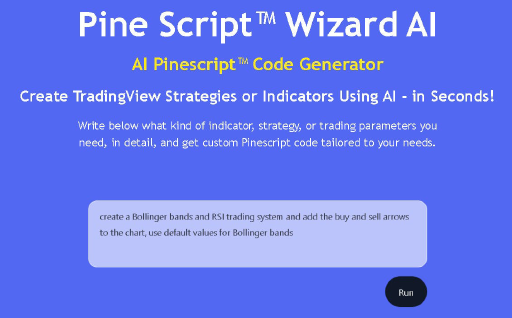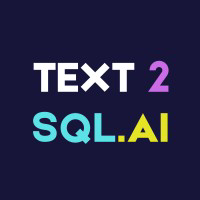Overview
Codiga is an innovative coding platform designed to enhance the efficiency and security of software development processes. By offering real-time static code analysis and security analysis, Codiga ensures that developers can identify and rectify coding issues and vulnerabilities directly within their integrated development environments (IDEs). The platform supports popular IDEs such as VS Code and JetBrains, and seamlessly integrates with version control platforms including GitHub, GitLab, and Bitbucket.
One of the standout features of Codiga is its capability to conduct automated code reviews, which significantly accelerates the development cycle and improves code quality. Developers can also customize code analysis rules according to their project needs, and these custom rules can be shared across teams, fostering a consistent coding standard and further enhancing code security.
Codiga is particularly beneficial for development teams looking to boost productivity without compromising on code safety. Its user-friendly interface and powerful tools make it an essential asset in modern development workflows, helping teams deliver secure, high-quality software more efficiently.
Key features
- Real-time code analysis: Codiga provides instant feedback on code quality and security issues directly in the IDE, helping developers fix problems before they escalate.
- IDE integration: Seamlessly integrates with popular IDEs like VS Code and JetBrains, allowing developers to use Codiga's features without leaving their coding environment.
- Automated code reviews: Codiga automates code reviews by analyzing pull requests for issues and vulnerabilities, speeding up the review process and reducing manual effort.
- Custom rule configuration: Developers can create and customize their own code analysis rules, making it possible to tailor Codiga's tools to specific project needs or coding standards.
- Rule sharing across teams: Codiga supports sharing custom rules among team members, ensuring consistent code quality and security standards across all developers in a project.
- Multi-platform support: Codiga integrates with major version control platforms like GitHub, GitLab, and Bitbucket, facilitating a smooth workflow for continuous integration and deployment.
 Pros
Pros
- Code quality metrics: Codiga provides detailed metrics on code quality, helping teams track improvements and regressions over time for better project management.
- Security compliance checks: Codiga ensures code complies with security standards, reducing risks and vulnerabilities by enforcing best practices throughout the development process.
- Smart code snippets: Codiga offers a repository of smart code snippets that can be reused to accelerate development and maintain consistency across multiple projects.
- Learning and onboarding: Codiga helps new developers learn coding standards and practices quickly, facilitating smoother onboarding and team integration.
- Performance optimization: Codiga analyzes code for performance issues, offering suggestions to optimize speed and resource usage, crucial for maintaining efficient applications.
 Cons
Cons
- Learning curve: Codiga's advanced features and customization options can be overwhelming for new users, requiring a significant time investment to master.
- Dependency on connectivity: Codiga's real-time analysis and IDE integration require a stable internet connection, which can be a limitation in low-connectivity environments.
- Resource intensity: Running Codiga in the background for real-time analysis and automated reviews can consume significant system resources, potentially slowing down the IDE.
- Over-reliance on automation: While automated code reviews are efficient, they might miss context-specific nuances that manual code reviews could catch, potentially leading to overlooked issues.


